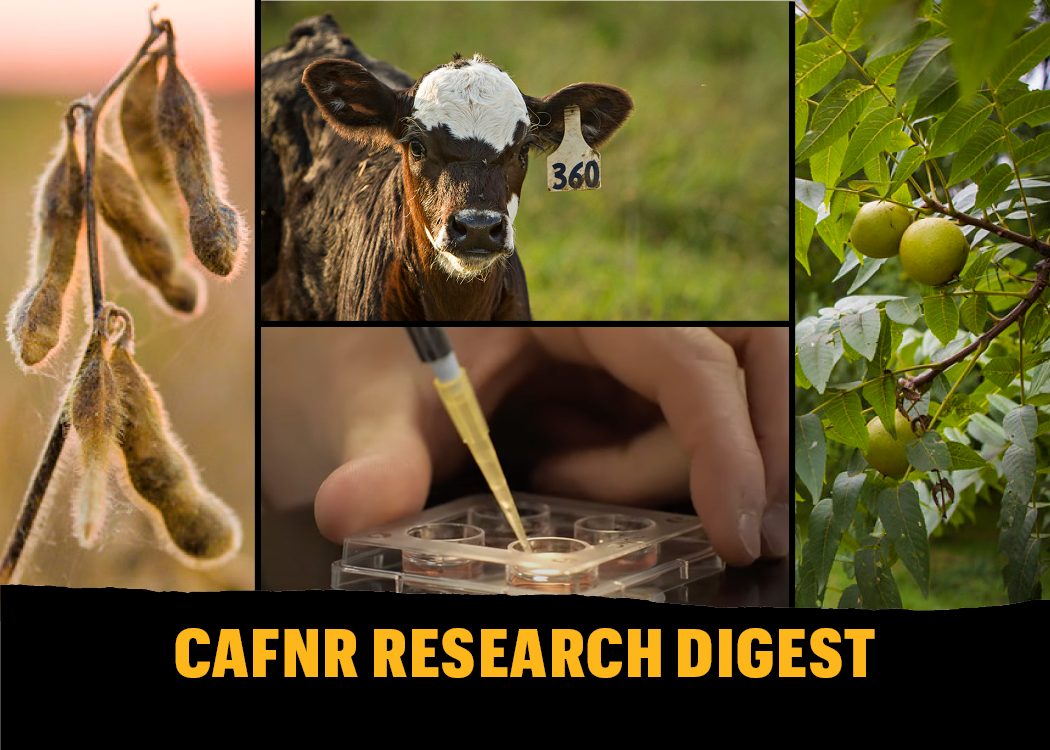CAFNR faculty members have received the following recent grants (listed by Principal Investigator):
Henry Nguyen, Gene editing and innovative mutation breeding approaches to develop 2nd generation improved soybean soluble carbohydrate composition, Texas Tech University (USB), 10/1/24-9/30/25, $85,406
Henry Nguyen, Redefining the effects of beneficial microorganisms on N fixation and nutrient uptake in soybean to provide sustainable solutions to reduce chemical fertilizers use, Texas Tech University (USB), 10/1/24-9/30/25, $80,378
Andrew Scaboo, New Tools for Soybean Cyst Nematode Control, University of Wisconsin-Madison (USB), 10/1/24-9/30/25, $60,000
Bradley Wilson, Seed Quality 3.0: Beltwide Cool Germination Radicle Threshold Trial, Cotton, Inc., 1/1/25-12/31/25, $5,000
Hannah Hemmelgarn, Building a Forest Farming Network to Support Greater Farm Diversity and Enhanced Ecosystem Services in Missouri, Lincoln University (NIFA), 4/15/24-4/14/27, $22,835
Felix Fritschi, Utilizing Genes from the Soybean Germplasm Collection to Mitigate Drought Stress – Phase II (Year 2), Agricultural Research Service (USB), 10/1/24-7/31/25, $226,034
Feng Lin, Utilizing Genes from the Soybean Germplasm Collection to Mitigate Drought Stress – Phase II (Year 2), Agricultural Research Service (USB), 10/1/24-7/31/25, $47,054
Henry Nguyen, Expanding the Genetic Base of Southern Root-knot Nematode Resistance in Soybean, University of Arkansas (USB), 10/1/24-9/30/25, $96,801
Gurbir Singh, Enhancing tools to manage phosphorus in agricultural fields in the Northcentral region to reduce the risk loss to surface waters: a project supporting the Fertilizer Recommendation Support Tool (FRST), University of Minnesota (USDA), 10/1/24-9/30/27, $140,850
Jay Johnson, Understanding the role of the genome, microbiome, and epigenome on the transgenerational effects of in utero heat stress in pigs, North Carolina State University (NIFA), 7/1/24-6/30/26, $128,053
|
